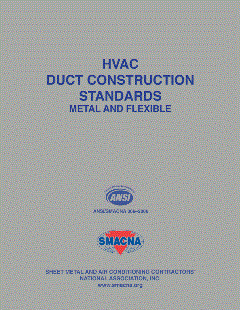A federal district court has stopped
a plan by Albuquerque, N.M., to impose its own efficiency standards for HVAC
equipment.
A federal
district court has temporarily stopped a plan by Albuquerque, N.M., to impose
its own efficiency standards for HVAC equipment.
The 10th U.S. District
Court issued a preliminary injunction Oct. 3, blocking the city from enforcing
an ordinance passed last year that requires air conditioners installed
in new or existing structures to have at least a 14 seasonal energy-efficiency
rating - one point higher than the federal minimum - and residential furnaces
to have a 90 percent annual fuel utilization efficiency rating. Current federal
law requires a 78 percent efficiency rating.
The Air-Conditioning, Heating and
Refrigeration Institute, the Heating,
Airconditioning and Refrigeration Distributors International, the Air
Conditioning Contractors of America, and 11 local HVAC distributors and
contractors filed suit July 3, alleging that Albuquerque lacked the
right to set its own standards for residential and commercial heating and
air-conditioning equipment under federal law.
“Those
of us who know the marketplace - the equipment manufacturers, dealers and
installers - have discovered that when minimum standards are raised beyond
the point at which they are economically justifiable, it results in more
repairs and fewer replacements of older, less efficient equipment, therefore
saving no energy,” said AHRI President Stephen Yurek. “We could achieve
greater energy savings faster, especially in these tough economic times, if we
provide incentives for homeowners to upgrade to equipment that meets the
federal minimum-efficiency standards and take measures to ensure that this
equipment is properly installed and maintained.”
In
its opinion, the court said that while Albuquerque’s goals were solid, the
ordinance likely “infringes on an area preempted by federal law.”
The
court’s ruling does not end the case. However, it ruled that there was a substantial
likelihood of the HVAC groups’ lawsuit succeeding.
The
next hearing is expected to take place in early November.
Copyright ©2024. All Rights Reserved BNP Media.
Design, CMS, Hosting & Web Development :: ePublishing






